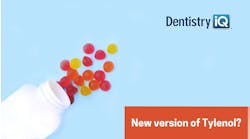As the holidays get closer, we’re barraged with social media posts about gratitude. Scrolling through my feed I see an endless supply of quotes about being grateful or thankful accompanied by family photos, shared experiences, and unique gratitude practices people have developed.
Fall and the holidays especially seem to bring out our desire to express gratitude, and over time we develop ways of showing thankfulness. Here I’ll review some of the benefits of regularly practicing gratitude and discuss ways we can incorporate this into our careers and work lives.
According to Harvard Health, the word gratitude is derived from the Latin word gratia, which means grace, graciousness, or gratefulness (depending on the context).1 When we practice gratitude, we’re practicing thankfulness and expressing appreciation for what we have, what we’re receiving, or even what we hope to receive. We think of being grateful toward other people, but we can also apply gratitude toward nature, our surroundings, or a spiritual and religious power.
You might also want to read:
Thoughts on being thankful from Dianne Glasscoe Watterson
How gratitude can help you
Many health benefits have been observed from the regular practice of gratitude, whether it’s keeping a gratitude journal, writing thank you letters, taking time to meditate on things you’re grateful for, or your own version of practicing gratitude that works for you. According to researchers at UCLA, “A review of 70 studies that include responses from more than 26,000 people found an association between higher levels of gratitude and lower levels of depression.”2 There are many other health benefits with regular habitual gratitude practice, including decreased anxiety, a decrease in the biomarkers for heart disease, stress relief, and improved sleep.
While developing a general gratitude practice can greatly benefit overall wellness, I challenge you to use gratitude when it comes to your daily routines as a dental hygienist. I came across a concept years ago that’s lingered with me ever since, and it challenged me to view situations from a “get to” versus “have to” point of view. Instead of looking at daily tasks as something you “have to” do (an obligation), reframe your mindset and see them as something you “get to” do (opportunities).
Change your mindset
This simple but powerful shift in mindset puts gratitude at the forefront of all you do. Instead of “having to” see that patient who is never compliant, you “get to” have the opportunity to provide quality care for them and maybe try something new that might stick.
There are many aspects you can be thankful for in your work life. Look to your coworkers, the doctor you work with, your patients, the benefits you’re offered, the schedule you work, and the skills and expertise you bring to the table every day. I hope you’re in an office where you, your expertise, and your input are highly valued. I hope your coworkers and the doctor collaborate with you and emphasize teamwork.
If you’re in an office where things are even remotely good, I hope it’s easy to find things to be grateful for, and if you’re not I hope you can have an attitude of gratitude toward the future opportunities that have yet to come your way. I hope we can each shift our perspective a tiny bit to be grateful for the life-changing work we “get to” do as licensed oral health-care professionals.
References
- Giving thanks can make you happier. Harvard Health. August 14, 2021. https://www.health.harvard.edu/healthbeat/giving-thanks-can-make-you-happier
- Health benefits of gratitude. UCLA Health. March 22, 2023. https://www.uclahealth.org/news/health-benefits-gratitude
Amber Mason, RDH, practices dental hygiene in Athens, Georgia. She is passionate about patient education and strives to provide the highest level of care possible for patients. Amber can be contacted at [email protected].






